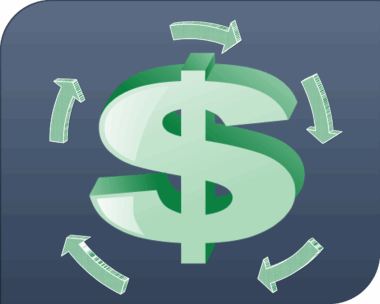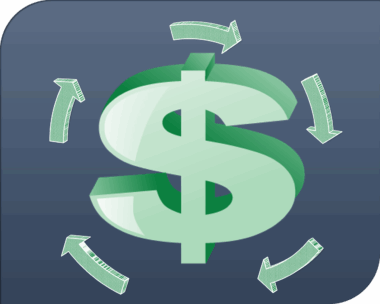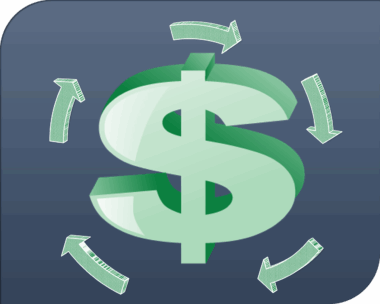Impact of Late Payments on Cash Flow and How to Prevent Them
Late payments can severely disrupt a company’s cash flow management, leading to numerous financial challenges. When clients delay payment, businesses face difficulty meeting their own obligations, such as paying suppliers or employees. This can create a domino effect that impacts company operations and growth potential. Without steady cash flow, unexpected expenses may arise, making it challenging to maintain normal operations. Prompt billing and clear payment terms can mitigate late payments effectively. Businesses must also assess their invoicing process to ensure efficiency, ensuring that invoices are sent promptly. Furthermore, leveraging technology can streamline this process, allowing for quicker and more effective collection efforts. By implementing early payment discounts or late fees, companies can incentivize timely payments from their clients. Open communication with clients is crucial in this aspect, as it promotes mutual understanding of payment expectancies. Regularly reviewing cash flow statements can also help businesses anticipate potential issues arising from late payments. Proactive management of accounts receivable allows organizations to identify slow-paying clients and address the issues to maintain financial stability.
Another critical aspect contributing to late payments is the relationship between businesses and their clients. Building strong relationships fosters trust and communication, which can significantly lessen payment disputes. When a business maintains a personal relationship with clients, it ensures that payment reminders are received positively, rather than as bothersome nuisances. Establishing regular check-ins can greatly help in cultivating these relationships. Furthermore, businesses should offer flexible payment options to their clients, catering to varying financial situations. These options might include installment plans or various payment methods, making it easier for clients to settle invoices on time. Educating clients on the importance of timely payments is essential in this regard. Well-informed clients are more likely to prioritize timely payments, as they understand the impact of late payments on the vendor’s cash flow. Additionally, prompt collection of outstanding debts can be aided by maintaining a consistent follow-up schedule. A systematic approach to overdue accounts will demonstrate professionalism while clearly communicating the importance of payment deadlines. Ultimately, strong relationships empower businesses to navigate cash flow challenges effectively.
Understanding the Consequences of Late Payments
Understanding the consequences of late payments is vital for all organizations. Cash flow is the lifeblood of any business, and delays can create ripple effects that hinder growth. For example, when a company experiences cash shortfalls due to late payments, it may need to rely on costly credit options to manage day-to-day expenses. This situation increases the company’s operational costs and can lead to debt accumulation. Moreover, a negative reputation can develop if customers perceive a company as financially unstable or unable to meet obligations. This perception can deter potential clients from engaging in business and lead to future financial hardships. Poor cash flow management may also impact strategic investments, as limited funds restrict opportunities for growth. To avoid falling into this trap, companies need to develop effective cash flow forecasting strategies. Monitoring accounts receivable closely enables businesses to detect any patterns related to slow payments and adjust strategies accordingly, leading to improved cash flow management. Ultimately, understanding the potential consequences of late payments will empower businesses to adopt proactive measures that safeguard their financial health.
In addition to the negative impacts listed earlier, companies also need to consider the administrative burden that comes with late payments. Handling overdue accounts can consume valuable resources, diverting attention away from core business activities. Employees may spend numerous hours attempting to collect payments or resolving discrepancies over invoices. This time could be better spent focusing on revenue-generating activities that contribute to growth. Automating collection processes can alleviate some of this burden, freeing up staff to concentrate on essential functions. By utilizing software solutions designed for cash flow management, companies can streamline their operations and enhance productivity. Furthermore, it is crucial to create a structured timeline for addressing overdue payments. Setting clear protocols for following up with clients is vital in ensuring consistent communication, which may prompt payment. Employers should ensure that their employees are trained in effective communication strategies, creating a more effective engagement with clients. Enhancing the efficiency of cash flow management not only aids in timely payments but also cultivates a professional image. This fosters a positive atmosphere for clientele, ultimately improving business reputation and relations.
Developing a Proactive Payment Strategy
Creating a proactive payment strategy is essential for minimizing late payments. Companies can begin by clearly defining payment terms in all contractual agreements. This awareness helps establish clients’ expectations from the outset, significantly reducing ambiguity around payment deadlines. Additionally, incorporating reminders before invoices are due serves to keep payment on the radar for customers. Scheduled communication, such as reminder emails or phone calls, can maintain attention on approaching payment dates. Encouraging prompt payments may also include offering clients small discounts for early settlements, providing additional motivation for timely payments. Regular payment review processes can also enhance effectiveness, ensuring that companies stay informed about outstanding invoices. This approach identifies potential issues before they escalate and ensures proactive engagement and resolution strategies. Engaging clients in discussions about cash flow expectations opens pathways for understanding and transparency. Forging this relationship helps both parties align their financial goals and reduces conflicts. A flexible approach when handling payments, adjusting to the client’s needs, can create goodwill, further encouraging prompt payments, ultimately improving cash flow management.
Moreover, leveraging technology effectively strengthens a business’s efforts in managing cash flow. Implementing software that streamlines invoicing and payment processing can significantly reduce delays associated with manual systems. These technological solutions provide features like automated invoicing, enabling on-time distribution of bills, thus minimizing opportunities for delay. Additionally, integration of payment platforms allows clients to pay using their preferred methods, increasing the likelihood of quicker settlements. Utilizing analytics tools can furnish invaluable insights, highlighting trends in clients’ payment behavior, thus identifying high-risk customers early on. With real data at hand, businesses can tailor their collection strategies accordingly, optimizing efforts to seek timely payments. Moreover, businesses can automate reminders, customizing these communications to reflect the tone and relationship dynamics with each client. Incorporating clear and consistent communication reinforces expectations and fosters client accountability. These advanced techniques not only improve efficiency but also shape a positive payment culture within organizations, encouraging all parties to prioritize prompt payments. Ultimately, adopting these strategies will bolster cash flow management, positioning businesses for sustained growth and resilience.
Conclusion: Key Takeaways for Better Cash Flow Management
In conclusion, adopting effective strategies to prevent late payments will ensure better cash flow management for businesses. Understanding the direct consequences of delayed payments allows companies to prioritize necessary actions to mitigate risks. Building robust client relationships and fostering open communication regarding payment policies can significantly enhance timely settlements. Implementing proactive measures, such as clear payment terms and structured follow-ups, facilitates seamless transactions. Furthermore, incorporating technology in the invoicing and payment processes enhances efficiency, keeping the focus on growth rather than administrative tasks. Developing customized solutions for each client’s payment journey strengthens those relations further, promoting accountability. Lastly, continuous review and adaptation of cash flow strategies in response to client behavior will yield fruitful results over time. As organizations prioritize cash flow management, they cultivate a solid foundation for long-term success, resilience, and adaptability in their financial practices. By remaining vigilant and proactive, companies will not only minimize the pitfalls of late payments but also create an empowering financial environment that drives business growth. These strategies will ultimately lead to a strong and sustainable economic future.
In today’s fast-paced business environment, effective management of cash flow is essential for sustainability and growth. Timely payments serve as a cornerstone for fostering healthy cash flow, allowing organizations to thrive. The implementation of rigorous cash management strategies not only protects profits but also reinforces relationships with clients. Additionally, understanding how to effectively leverage technology can facilitate seamless payment processes, ultimately benefiting all parties involved. Businesses committed to maintaining cash flow stability will achieve greater operational agility and readiness to adapt to market changes.





